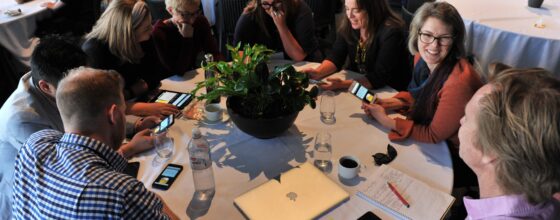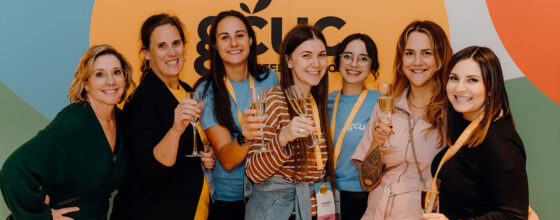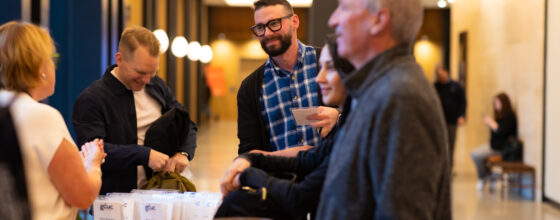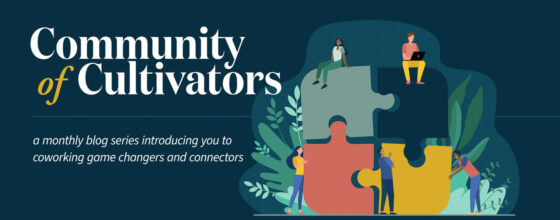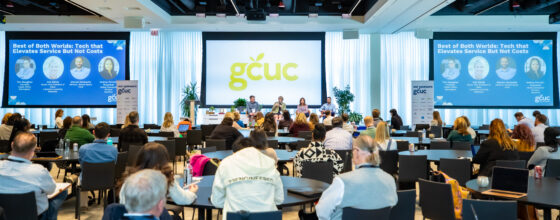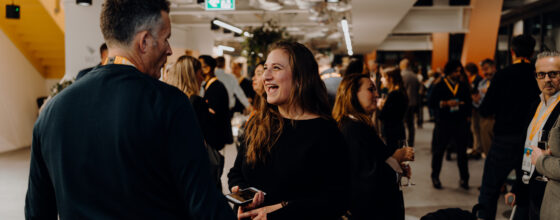A Fail Wail Tale
One of the things I love most about being a part of the larger coworking community is the spirit of sharing between people who are still trying to figure it all out.
The first year — or three — can be a rollercoaster of victories and defeats, but there are literally hundreds of people out there more than willing to share the things they have found to work for them. During the first year of building our community I was fortunate enough to get endless amounts of amazing advice from veteran coworking space operators around the world and it made all the difference between continuing on and throwing in the towel.
The other side of that coin was that I often found myself feeling alone and as if I was the only one struggling through building community, like I was the only one for whom it was taking really hard work with only marginal progress. I found myself wondering more often than I like to admit, “Am I the only one having trouble making coworking work?”
Everybody makes mistakes.
One of the most exciting moments of GCUC 2014 was when Angel Kwiatkowski of Cohere proposed a “Fail Wail” unconference session; The idea was that we get some of the veteran space operators into a session to talk about their biggest failures, screw-ups, and near disasters. I jumped at the opportunity to participate and the theme of sharing in our failures has stuck in the forefront of my mind in the year since.
In that spirit of sharing, I’d like to share a “Fail Wail” of my own in the hopes that some others might learn from our experiences.
I started The Salt Mines in Columbus Ohio in 2012. Our community is largely comprised of individual freelancers, telecommuters, and the occasional two-man teams; and despite the warnings I’d heard from fellow owners, I learned the difference between individuals and teams the hard way.
Here’s what I learned, so you don’t have to learn it the hard way
At little less than 2 years old, we had recently launched a second location nearby. We had a solid community in the first space, and plenty of space to grow into, but when we were approached by an out-of-state organization looking for a home for their local chapter, we were initially hesitant to even entertain the idea. The majority of our membership was comprised of individuals, and the few times we had taken on teams — even small teams of 3 or 4 people — the relationship never lasted longer than a few months because it was just so difficult to get the individual members of teams outwardly focused and engaged with the larger coworking community.
After the first meeting, though, we began to see a situation that could really be mutually beneficial: they presented themselves explicitly as an organization that strived beyond merely geeking out over technology and instead had a heavy focus on community, empathy, and working as part of a team — all core components of a successful coworking community. And like I said, we had some space to fill in our new location.
“Let’s give it a try”
As our talks continued, we mutually decided to give it a two-month trial run.
Over the next few months, we did our best to lay the groundwork to make this initiative a success for everyone. We talked through the physical logistics of our space, finding a good place for them to work together during formal teaching sessions without disturbing the members who were used to a more heads-down work style. We had the Internet speed doubled and brought in extra pairing desks and chairs. We even thought to have additional trash cans and dumpsters brought in to handle the influx of paper waste.
We had our bases covered, or so we thought.
Facilities is the easy part. The hard part was more subtle.
As early as day one, we could already see some problems we hadn’t anticipated because they weren’t exactly the “facilities” issues we’d already addressed.
Although the organization’s founder expressed eagerness to be a part of our community, it quickly became apparent that the local chapter head hadn’t been consulted in the decision and wasn’t at all interested in involvement with our community. Every time we spoke to him about making arrangements, his concerns entirely centered around his people and their needs and making sure they had the dedicated resources for their success. As much as we tried to steer the conversation toward how we, as a larger community, could support them it always turned back to asking what we could do to make sure they had dedicated resources focused entirely on them. We were told several times that they had “no need for community involvement” and that they already had that covered. We had to literally insist on having five minutes in front of their members to welcome them into the community, explain everything our community opened them up to, and spell out the give-and-take that comes with being part of a collaborative community like ours. The only thing that finally convinced them of our seriousness on this point was our insistence that we wouldn’t distribute keys without this introduction.
Kill ‘em with kindness, right?
Things were off to a rough start, but instead of addressing these problems head on we channeled our frustration into trying to be more accommodating and more flexible to our new members, hoping that they would reciprocate.
Being hopeful didn’t get us very far. Things didn’t get better — they got worse.
Over the rest of that week the trash piled up in record time, coffee cups were left out. Finding unreported clogged toilets became a daily occurrence. Our members are awesome, and they totally picked up the slack, but it was clear that the new members weren’t pulling their weight and the seeds of resentment were being planted. The final straw was when the building owner, one of the most flexible and accommodating men I have ever had the pleasure of working with, called to say that someone had been rifling through his private files and that he absolutely wanted this group out.
One week to the day after their first day in the space, we gave them official notice that we needed them out. They were disappointed that the dissolution was so sudden, but they also agreed that our groups just weren’t a great fit for one another. We helped them get through their last day of organized classes, talked through some of the specific instances that lead to this decision, and worked with them and their group to clean up some of the major messes that remained.
We had to get our community on board with this resolution
We took the next week to to regroup, take stock of the community, and get as many perspectives on what happened that week as we could. We were very lucky that, rather than driving away our existing members, we were instead strengthened as a group and were able to truly see what a respectful, supportive community we had managed to build.
We also learned an extremely important and fundamental fact that is a core ingredient to coworking: self-selection.
When cultivating an environment where people genuinely care for and help each other, it’s critical that people are there because they have explicitly opted into it. When people are in a community because they were told to, their number one priority is going to be to do what is necessary to keep their employer happy. That’s perfectly natural, but it can directly conflict with the reason everyone else is in the space — to support everyone and help further the group as a whole.
It takes a lot of work to show people that coworking is more than renting desks and sharing the cost of an Internet connection when they’re only there because they were told to be there, and when your community has a sudden growth that consists entirely of members who haven’t joined of their own choice the complexity is compounded that much further.
Share your failures, so others can avoid them
This particular failure certainly wasn’t our first and I have no doubts that it won’t be our last, but what I’ve learned is that there are far worse things than failure… but only if you learn from your mistakes.
Working in community and trying new things will inevitably lead to some failure, but if we use these failures to learn about ourselves individually and to better ourselves collectively, we come out as better people. If we can learn from each others failures and not just from our own, we can grow not only as a community but as a community of communities.
Share your failures, and learn from the failures of others, and don’t be afraid to try new things even if you’re unsure how they’ll turn out.
But also, you’re probably not the first to make a mistake, so ask your fellow members of the global coworking community what they’ve tried and how it’s gone before so you don’t need to go through unnecessary pain.
Got a #FailWail tale of your own? Share your story on the GCUC blog.
Andy Soell is the co-founder of The Salt Mines, a coworking community in Columbus, Ohio. You can reach Andy at [email protected]


